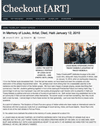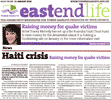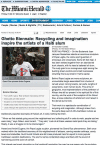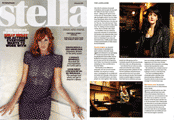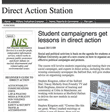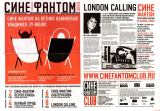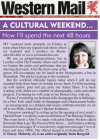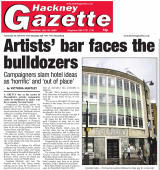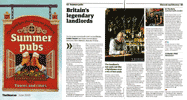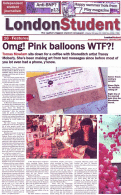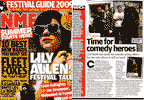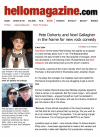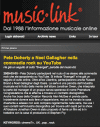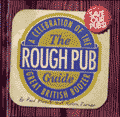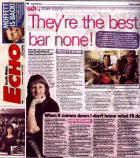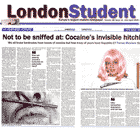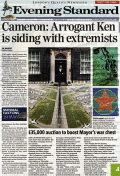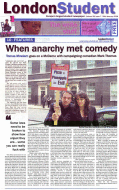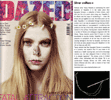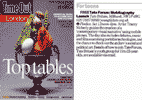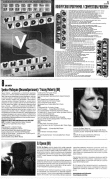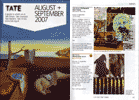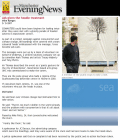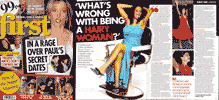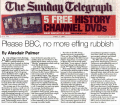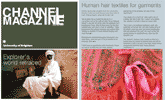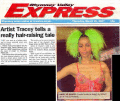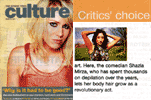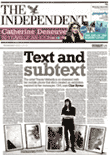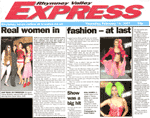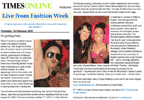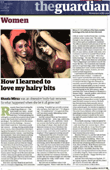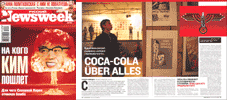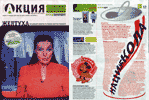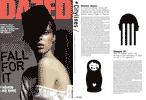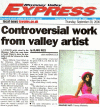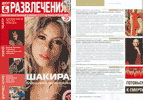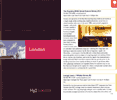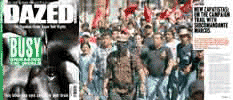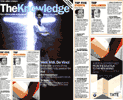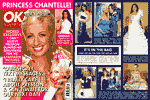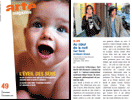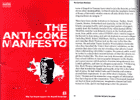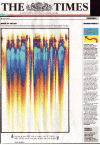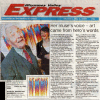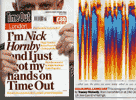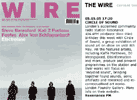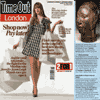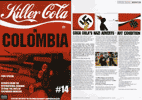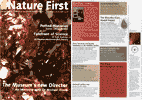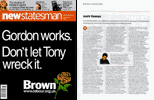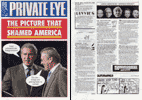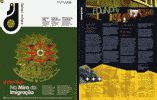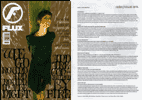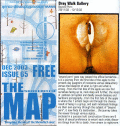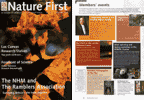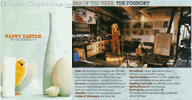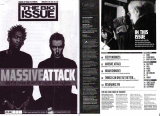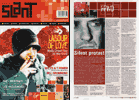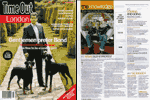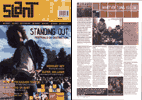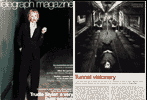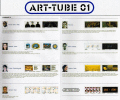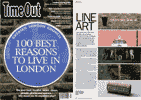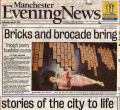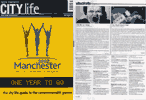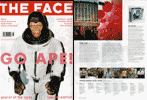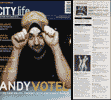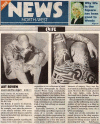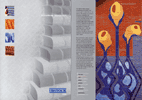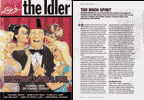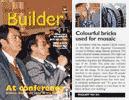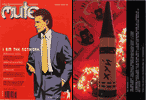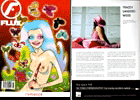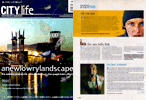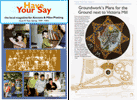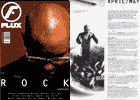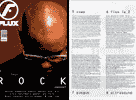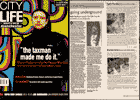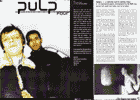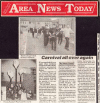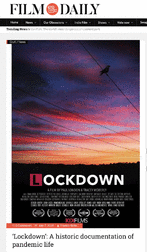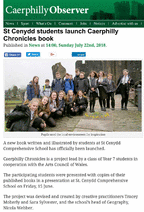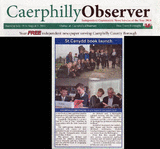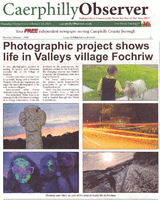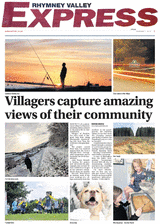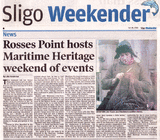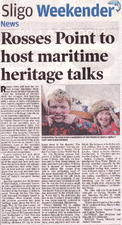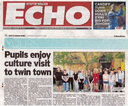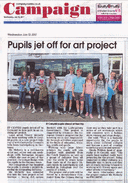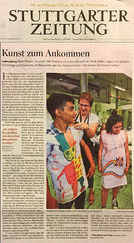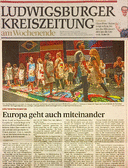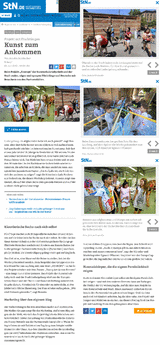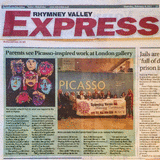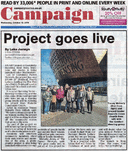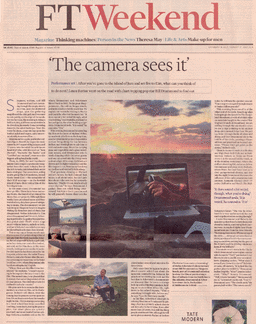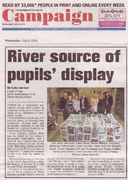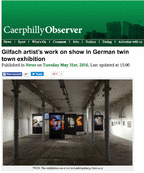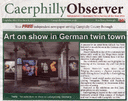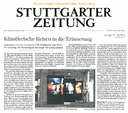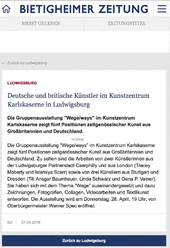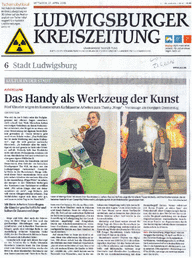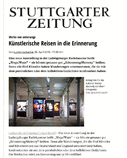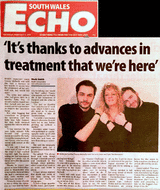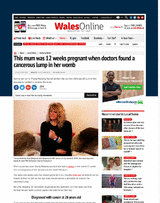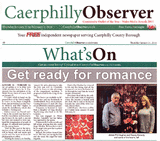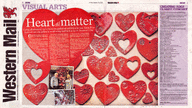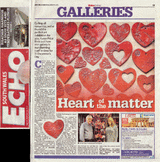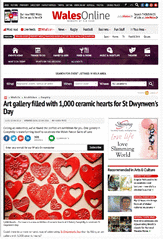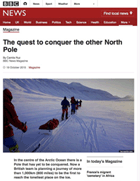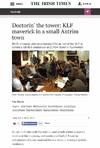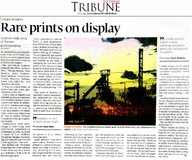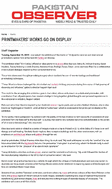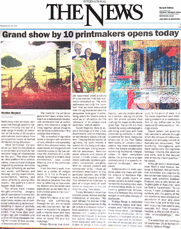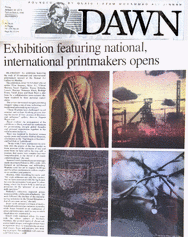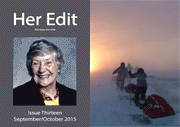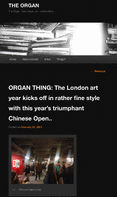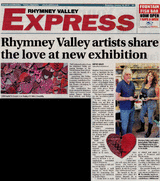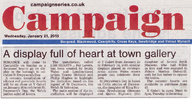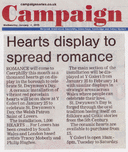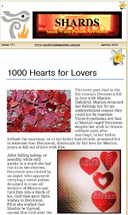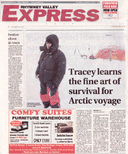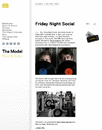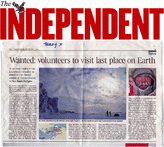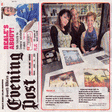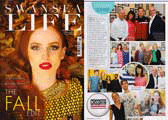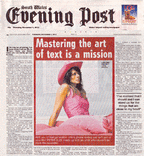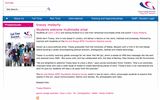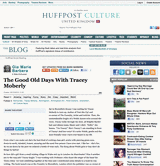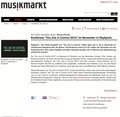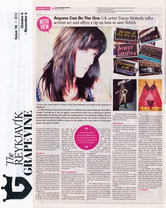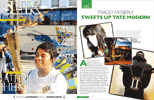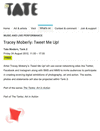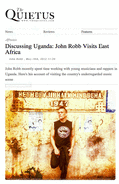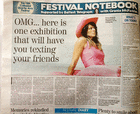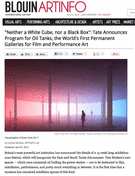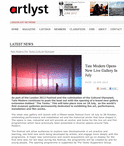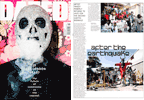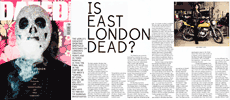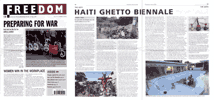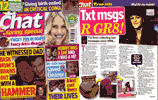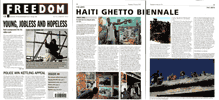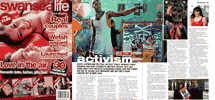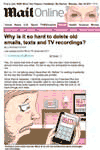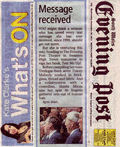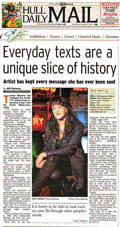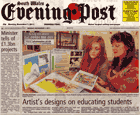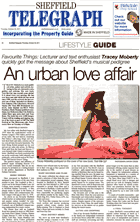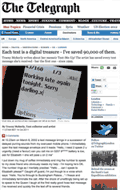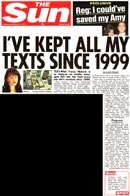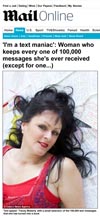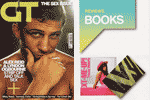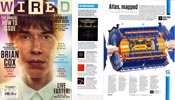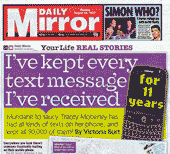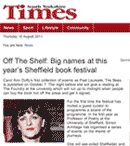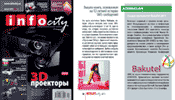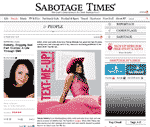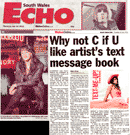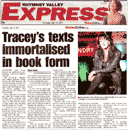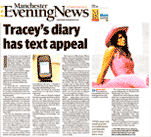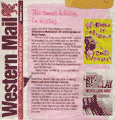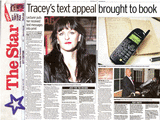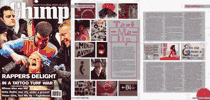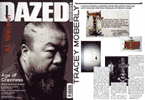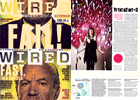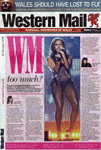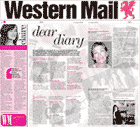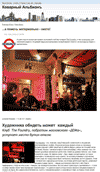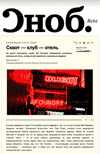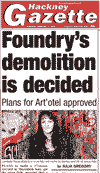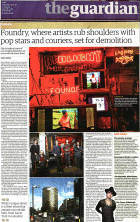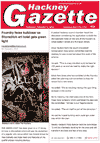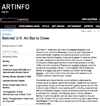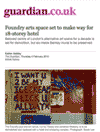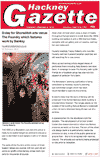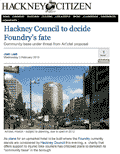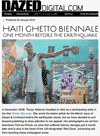[press]
[<<<] [>>>] click on image to enlarge

© tracey moberly 20100127.Western_Mail_Joy_of_TXT.jpg
Western Mail
Tracey Moberly
The Joy of TXT
The WM Interview
27 January 2010
TRACEY Moberly has never thrown away a love letter. She keeps shoeboxes full of her old teenage diaries chronicling a tearaway life in the Rhymney Valley, and she has collected hundreds of thousands of SMS text messages filling in excess of 60 journals.
But she had no idea that one day these in-jokes, words of love and observational banter would be shared with a potential global audience.
The eccentric artist, activist, pub landlady and photographer has just landed a book deal to publish a selection of the many text message she has received since 1999, and there is talk of a TV version of the project with none other than Trainspotting author Irvine Welsh at the helm.
Welsh-born Tracey is a woman who has travelled all over the world, but for her latest life chapter, the action began in mundane circumstances in rainy Manchester when the mother-of-two was at her lowest ebb.
In her early 30s, Tracey, from Gilfach in Bargoed, found herself separated from her husband of 15 years, alone in a strange city looking after two children and lecturing in art by day at Manchester Metropolitan University.
"I was coming out of a tumultuous relationship," she says, in the rapid broad Welsh accent she hasn't lost despite leaving the Valleys 15 years ago. "I would be on a bus, going through the city on a really grey, horrible day, feeling shattered, upset and stressed out - and I would get this 'ping'."
At 43, Tracey now confesses that while she might be considered reasonably cool and cutting edge (singer Pete Doherty is a friend and she now runs a trendy pub in an achingly hip area of East London but more of that later) when it comes to technology, she's not always been as quick to catch up.
And she was unaware this 'ping' on her bulky pre-new millennium Nokia phone was, in fact, the first of countless text messages she would receive over the next decade. "The very first one 1 kept was from a male friend, and I didn't know what the noise was," she said.
"I'd only had a mobile for two months and people weren' t texting as madly as they are now - it was a bit of a mystery and it took me a while to work out how to do it, which seems crazy and dated as I'm always texting these days.
"I remember that text because it was the first one 1 was able to answer.
"It was so lovely, and so supportive, and not something Dave would have had the courage to say to my face, and I thought there and then I had to start keeping them." And the texts continued, each one a "sugar rush" that carne through at just the right moment as Tracey was dealing with her separation, and so moved was she by their effect, she began noting down every single one she received.
"I'd write them down in little journals and I eventually filled more than 60," she said. "Five years ago I started transferring them to my computer when I found out how to and that made things a lot easier."
Now those brief messages, from the most domestically banal to the fiercely poetic, will form the basis of a new book, Tracey's autobiography, TextMe- Up!, which will be told entirely in text form.
"It's a decade of my life in text," she said.
"But it's not just my life, I think of it as a social slice of history."
The book, due out next year, will run as three narratives spanning the years since the 'text revolution ' in Britain kicked off in 2001 , and is written autobiographically, chronologically and historically. It's been pre-empted by several exhibitions, one involving texts on 1,000 balloons in the middle of Manchester - a week later Tracey received an answer to one of her texts from Amsterdam.
A spin-off installation she collaborated on with author Danny Pockets was described by BBC Radio Ulster as a "21stcentury response to Not I by playwright Samuel Beckett".
And while the majority of us might not always identify with much of Tracey's life (her friends include KLF founder Bill Drummond and Dunstan Bruce from band Chumbawamba and she admits she has the luxury to make her living from the 'crazy' thoughts that pop into her head), the ideas at the centre of the book - communication and dialogue - should resonate with anyone who's ever owned a mobile phone.
And Beautiful Books loved the idea so much they're turning it into a book, which will be translated into several languages.
Author Irvine Welsh and screenwriter Dean Cavanagh are also seeking backers to make a TV and film version.
"I'm interested in how people communicate," said Tracey, who has campaigned in Venezuela against capitalism and recently returned from Haiti on a study of its ghettos just two weeks before the earthquake struck the devastated Caribbean country. "People criticise so-called text speak for dumbing down language but I think it's quite the opposite.
"Nowadays people use lovely, flowery language, rather than just abbreviating everything - but even the abbreviations are an interesting study into semiotics. "
The obsession with written communication began in Tracey's mid-teens when she was fascinated by graffiti in her village.
She remains a fan and still believes it speaks volumes about the psyche of a place. Describing herself as someone who has "never followed the expected path", when Tracey was a restless 21-year-old coming to the end of her fine art course at Newport Art School, she stuck a drawing pin into a map in a bid to decide where life was taking her next.
"I call it the 'chicken wire effect' ," she said. "My artwork is in the middle of everything and there are all these offshoots and conversations that lead me elsewhere and always have, from my very first art project at school when I was 17."
The pin rooted itself in Manchester and thus, so did Tracey, on an archeological dig at Castlefield, Manchester's Roman fort.
"I was there to photograph the finds and I ended up helping to dig up the north side of Manchester Cathedral," she said.
There she met her first husband and they married in 1986. They had two children, Izaac and Jake, but split 15 years later.
Tracey then moved to the Moss Side area of the city where she spent two lonely years before her friends persuaded her to begin dating again - and these often humorous and identifiable episodes feature in the book, told text by text.
"When I was lecturing, there was this lovely, trendy little bar called The Sand Bar that I would pop into, sometimes alone or sometimes with the students to do tutorials after a lecture," she said.
"And there was a guy working behind the bar who used to chat to me. "But I'd been married for so long I didn' t know how to date or attract men, and I was convinced I'd forgotten how to do that throwaway look."
With the encouragement of friends, Tracey began to test her flirting skills on the unfamiliar barman, it worked and they dated for a month, before Tracey, then 34, ended things because she thought the age-gap between her and a 24-year-old was too wide.
"That short episode was really important because it was me starting to date again," she said. "He was also a model; he had all these tattoos all over his back and he became like a muse for me in the brief time we were together and I started photographing him. "My friends nicknamed him The Object of Desire' and I've got lots of texts from them from that time, cheeky words of encouragement or enquiries about how it was going - the usual things that friends talk about at the start of a relationship."
Tracey never kept any text message she sent so says what she has been left with are refreshing perspectives from others on key moments in her life.
"My marriage broke down, we had children, it was horrible, and anyone who has been through that knows the feeling," she said. "When you come out of a relationship or something stressful happens to you, you realise how much you're loved by your close friends and it's when friendships really come into their own. "Texting helped me come out of that part of my life. "Bill [Drummond] on the other hand has written a chapter in the book about how texting actually ruined one of his relationships."
Later, Tracey was able to include references to her new life - she met husband, publisher Jonathon Moberly, in 2000 at the book launch of a mutual friend.
They soon fell in love, with Tracey and her children regularly travelling between Manchester, where the couple still run a pub, The Foundry, and London, where they run a radio station in Shoreditch.
"It's a diary but it's a diary of my life in other people's words," she said, adding the book will be punctuated by cultural references to her beloved music scene.
Tracey met infamous rock star Pete Doherty and his then band The Libertines when he hosted poetry nights at The Foundry and the band later asked her to be their manager, which she had to turn down because she was too busy with work and the children.
His texts, though, are due to appear and after this she's even working with Welsh rocker Robert Love of Alabama 3 on an album based on her text messages.
"There's the rise of Pete and The Libertines in the book too," she said. "And there are happenings other people can relate to, like when the ANC broke up in South Africa, and there's political stuff from [stand-up and activist] Mark Thomas, to really poignant words from my friend in New York, one who is HIV positive - he has also written a chapter about his illness."
And with changes in technology, Tracey is nostalgic about her texts, and even the functions of her iPhone have not been able to replace them in her affections.
"Since iPhones and Facebook, I tend to have major dialogues on email, soldo text less than I used to," she said. "You might not always have time to meet up or have a long conversation but I'm so affectionate about texts, they keep bonds strong." She added: "Izaac is 18 and Jake is 19 now and I still get 'love you Mum' texts from them and it's still lovely to see that come through on your phone."
Tracey's book will be available to download on mobile phones and she hopes it will serve as a testament to the changes, both social and linguistic, over a decade. "I'm obsessed with dialogue," she said, as we wrap up and I notice she has texted me 'I'm here x' an hour before our meeting in a Cardiff coffee shop.
She tells me her teenage sons, Londoners, are baffled by the texts she sends them. "Coming from the Valleys I know the way 1 speak is correct - I know what I mean when I say 'stop starting' or 'I'll do it now in a minute' and I love how it fascinates people who aren't from Wales.
"I'll always be fascinated by that."
Tracey and The Foundry have set up a fund for Haiti. To donate go to www.foundry.tv/haiti
